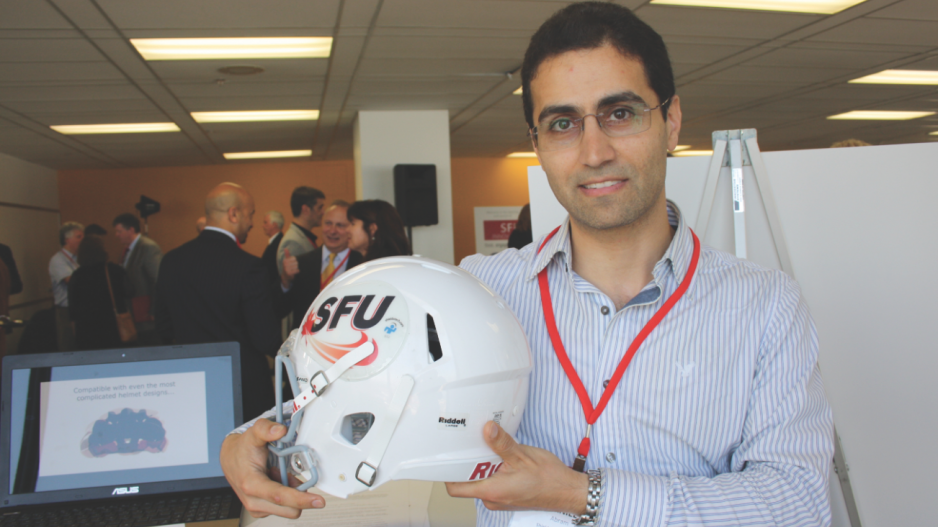Cecilia Berlanga figures it’ll be eight to 12 months before her startup’s birth contraction monitoring device will be ready to hit the market.
That’s about the same amount of time it takes to bring an infant to full term – give or take a few months – but the co-founder of BirthAlert insists her estimate isn’t a cute marketing ploy.
It’s the amount of time Health Canada needs to review and, she hopes, approve the wearable electronic patch.
“Technology has finally gotten to the point where you can use [it] to personalize health,” said Berlanga. “It doesn’t have to be big, fancy machines in a hospital.”
She and another co-founder have been working at BirthAlert full-time since graduating from Simon Fraser University’s (SFU) engineering program in August.
Four students founded the health-tech startup nine months ago through SFU’s Venture Connection incubator program. The university’s newly expanded VentureLabs accelerator is now guiding Berlanga and her co-founders toward getting BirthAlert on store shelves.
“We’ve had talks with lawyers, with entrepreneurs and a lot of other financial advisers,” said Berlanga.
VentureLabs takes up 24,000 square feet across two storeys at downtown Vancouver’s Harbour Centre. At its October 1 opening, SFU president Andrew Petter said that, combined with its other facility, VentureLabs is now “the largest business accelerator in British Columbia.”
Backed by $10.7 million from the Canada Accelerator and Incubator Program, VentureLabs is offering qualified startups mentorship and networking opportunities as well as free or discounted office space.
While BirthAlert is still far from getting to market, SFU’s innovation program has already had success helping other health-tech startups with commercializing products.
Snug Vest is selling a vest that provides deep-pressure therapy to people with autism. Last month, Shield-X Technology sold its first order of shock-absorbent decals that stick to football helmets to help prevent head injuries.
Shield-X founder Daniel Abram told Business in Vancouver the company has been using VentureLabs office space for about a year, while SFU’s Surrey campus has been available to the company for manufacturing and testing.
“The Innovation Office from SFU, from the very beginning, they’ve been very involved.”
Abram added that the program has also been guiding the startup through the process of filing patents.
But B.C.-based health-tech innovations are not the exclusive domain of startups.
Even communications giant Telus (TSX:T) is banking on the explosion of health-care technology as the baby boomers age.
The Vancouver-based telecom firm has invested $1.5 billion over the past decade in its health-care division, which is tackling everything from the development of electronic medical records to wearable devices for home health monitoring.
“The reason we’re in it is if you look at how much as a country we’re spending on health care, by the year 2020 we’re going to hit $250 billion,” Telus Health president Josh Blair said, citing figures from the Canadian Institute for Health Information. “We believe the only way to conquer that is through the use of technology to lower costs.”
In addition to engineers and software developers, Telus is hiring doctors and nurses who are advising how health information-sharing systems should work.
Blair said attitudes about exchanging medical information digitally are changing rapidly as younger generations feel more comfortable with the quick exchange of data, especially on smartphones.
He doesn’t anticipate much resistance to big investments in transferring sensitive medical data online.
“It’s one of the big advantages of being a teleco [telecommunications company] that’s dealt with privacy and data security for 100 years.”
@reporton



